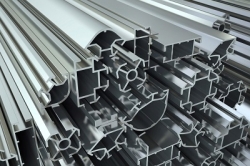Aluminium’s contribution to UK economy stifled by skills shortages

Posted on 08/04/2016
Various issues currently facing the aluminium industry could stifle its contribution to the future of the UK economy and job market.
The manufacturing sector currently employs 2.6 million people in the UK and plays an important role in both fuelling the national economy and supporting the local communities in which they operate.
However, manufacturing has underperformed the services sector for many years and this could be down to a range of issues facing individual industries.
The aluminium industry is struggling with issues concerning energy efficiency targets, competition from overseas and skills shortages, which could impact the contribution this industry has to the wider manufacturing sector and the UK economy.
In 2013, a Climate Change Agreement was passed, which would offer an extension to the Climate Change Levy rebate for energy intensive industries until 2023 in return for meeting energy efficiency improvement targets from 2013 to 2020.
But as the Government pulls vital capital funding, businesses are struggling to reach the increasingly difficult emissions targets with no means to do so, leaving the UK vulnerable to efficiency advancements from international competition such as Japan who, this year, launched its first fully integrated Carbon Capture and Storage (CCS) project in Hokkaido.
Another major problem facing aluminium is a lack of employment opportunities in the industry.
Aluminium specialist CDW Systems has been in business for over 21 years and recently celebrated a record year of trading.
However, Managing Director Jerry Webb says CDW struggled to hire new employees after introducing a second shift last year at its Gloucester-based factory.
He comments: “It shouldn’t have been as difficult as it was to recruit, which begs the question of is enough being done to promote the positives of working in the industry to young people and are there initiatives in place to train people with the skills needed.
“The work is there – as we grow we are adding more skilled and unskilled positions by the day – and we are keen to create more employment opportunities in our local area.”
Jerry goes on to say the industry needs to do more to raise the profile of aluminium and its importance to the UK’s job market and wider economy.
He concludes:“There are many new innovations and investments that are helping breathe new life, and bring new jobs into the UK’s aluminium and manufacturing industries and with the right support – for both local and national businesses – from trade bodies and the government, the UK could regain its stance as a manufacturing powerhouse.”


